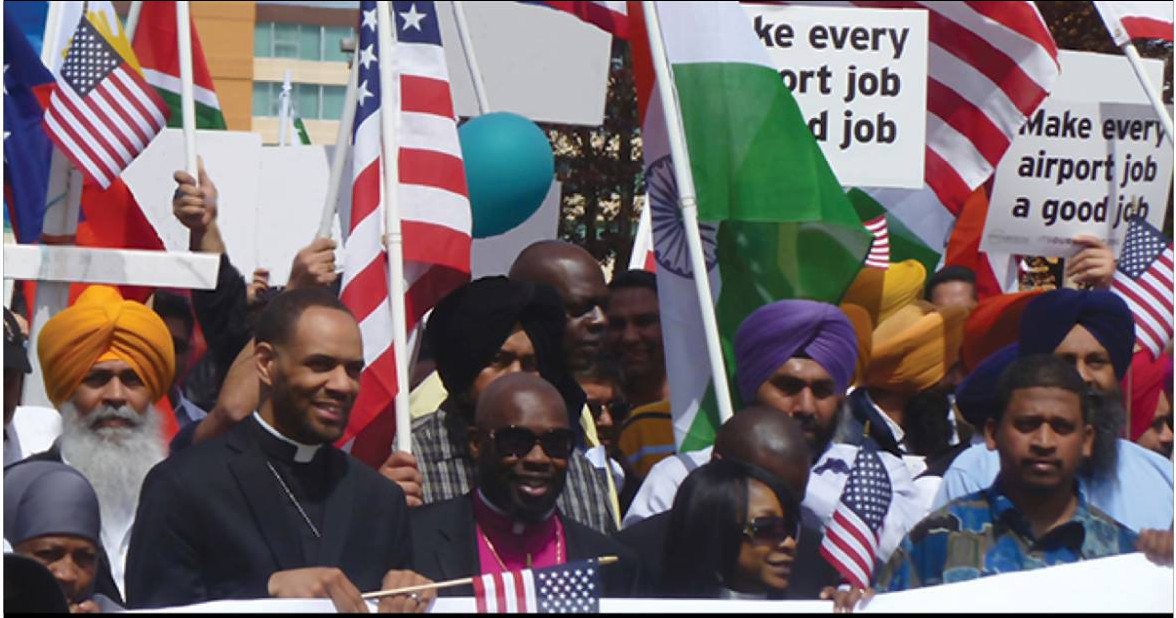Hammad Motiwala | Staff Writer
Featured Image: York invites author Jonathan Rosenblum for event focusing on worker’s rights. | Courtesy of YFile
On September 26, York’s Global Labour Research Centre hosted its “Beyond $15: Immigrant Workers, Faith Activists, and the Revival of the Labour Movement,” talk with Jonathan Rosenblum, labour organizer and author from Seattle, Washington.
The event was part of the Global Labour Speakers Series, involved Rosenblum discussing the first successful fight for $15 an hour. Just outside Seattle, an alliance of Seattle-Tacoma (Sea-Tac) Airport workers, union and community activists, and clergy staged face-to-face confrontations with corporate leaders.
The purpose was to unite a diverse, predominantly immigrant workforce, in a struggle over power against business and political elites.
“We knew we had to go outside the existing laws in order to build power for workers. Workers united under the banner ‘make every airport job a good job’,” Rosenblum said at the event. “We said, we didn’t care who the contractor was, the job should still pay decently with benefits and stability, and that all workers deserved union rights. We focused pressure on Alaska Airlines, as it was the dominant force at Sea-Tac Airport.”
In the spring of 2013, dozens of workers, clergy, and community allies went to the managements of the main airport contract companies in Alaska Airlines, calling for union recognition and negotiations. When the negotiations were rejected, the allies told the corporate elites that they were going to have voters impose working standards on them, which later led to a ballot initiative.
“In the initiative, Sea-Tac Proposition One called for an immediate raise from $9.30 an hour to $15 an hour. We also called for paid sick-leave, full-time hours for workers who wanted them, protection for workers to be able to hold on to their tips, and job security for contracted workers,” he added.
“In other words, if the airlines decided to change contractors, the boss got fired, but all the workers kept their jobs.”
“We won the initiative beating the airlines, the Chamber of Commerce, and all other airport businesses that spent millions against us. However, it took more than two years before Alaska Airlines and the Airport Commission lost their last court appeal, and workers got their full due,” he continued.
“What workers understood was, what happened at Sea-Tac was far more than a $15 raise—it was a bold move to tilt power away from the corporations and elites who controlled the airport, and back to the community and workers.”




